#Judean
Explore tagged Tumblr posts
Text





itamaredelman
We will not allow racists and bigots to preach to us our own history. Ashkenazi, Mizrahi, Sefardi, YEHUDI— we are one eternal nation ✡️
979 notes
·
View notes
Text
Saw the backlash on the israeli miku art so i wanna draw a native israeli miku with judean israelite hebrew jewish(yes i put all the names to emphasize that we are fucking indigenous) biblical clothes and maybe add some rikma patterns im working on that are all also based on jewish symbols, traditions, history, land etc and hope will turn out ok
(i don't know how to draw but I'll try my best)
#hatsune miku#israeli miku#vocaloid#Miku#miku hatsune#am israel hai#from the river to the sea yall can suck my d#jumbler#ישראבלר#jewish#jews#Judean#Israelite#artists on tumblr#Art#good luck to me#Less fucking GOOO
192 notes
·
View notes
Text
The Words We Use
Jumblr, we really need to reevaluate the words we use to talk about Judaism and Jews and such. Far too long we've been rather lax about these things.
Earlier today I was talking to a friend and she used the term "Jewish Russians" which immediately rubbed me the wrong way. (She's super chill and I've known her most of my life, she meant no harm by it.) I thought about it, and what I realized is that this specific wording, though listing it first, puts the Jewish identity as secondary. By saying "Jewish Russians" the "Jewish" is used as a subcategory of Russains. In reality, this term refers to Jews whose diaspora experience was in Russia. Too long, people have used our diaspora experiences as our central identifiers, and tack on "Jewish" as a classifier within that category.
This is not accurate, not historically, scientifically, or socially.
Socially and historically, Jews were always treated as a category of our own, regardless of where in the diaspora we were located. My parents in the Soviet Union did not have "Russian" or "Moldovan" written in their passports. They had "Jew" written there. I have heard countless tales of hostility and discrimination due to them being Jewish. In Spain, during the Inquisition, Jews who converted were called "conversos", a category of their own despite the forced assimilation. In the Middle East, Jews were treated as second class citizens due to being Jewish, even if they converted. ("Yahood" or "Jew" in Arabic is still commonly used as an insult in ME communities.)
We were never Jewish Russians, Jewish Spaniards, Jewish Moroccans, etc. We were Jews in Russia, Jews in Spain, Jews in Morocco. Even the term itself, "diaspora", (according to Oxford languages: "the dispersion or spread of a people from their original homeland") indicates a separate origin.
Genetic studies confirm this, showing that Jews in whatever region they spent exile in would still be more genetically similar to Jews in other regions than goyim in the regions they lived in.
My parents are not Jews from Eastern Europe. They are Jews whose diaspora experience was in Eastern Europe. Even saying we're "from" there, gives people the wrong idea.
Next up, more commonly discussed, is calling some Jews "white". No Jew is "white" in any sense of that word. White-passing, yes. White, no. In society, being white is more social than physical. It's based on how you're treated, what your status in society is, based on ethnicity/race.
"Jewish" is an ethnicity, and has been considered a race historically. No Jew is white. Many have features commonly associated with being Jewish, and their treatment will of course vary from the experiences of more white-passing Jews. But even the most white-passing Jew will have to deal with antisemitism in some way.
We need to stop saying "white Jews" and replace it with "white-passing". Denormalize language that positions Jewishness as only religion.
To combine the previous concepts:
Replace "Jewish *blank*" with "*blank* Jews" when talking about countries of recent origin.
Instead of "Jews from *blank*" use something along the lines of "Jews with diaspora experiences in *blank*".
Instead of "white Jews" use "white-passing Jews".
It is so incredibly important that we use language that accurately reflects our identity as Jews, instead of settling on commonly used language that is inaccurate.
And finally, could we please normalize using "Judeans" instead of "Jews"? It's not as important as the other switches but it is so important to highlight our origins in Judea, and it could be a useful way to bring that fact into the spotlight.
Fellow Jews/Judeans, feel absolutely free to reblog with other language switches you'd want to see in our communities, whether in the same theme or not.
Goyim, please refrain from speaking over us on this, but I'd appreciate you amplifying this if you'd like to!
251 notes
·
View notes
Text
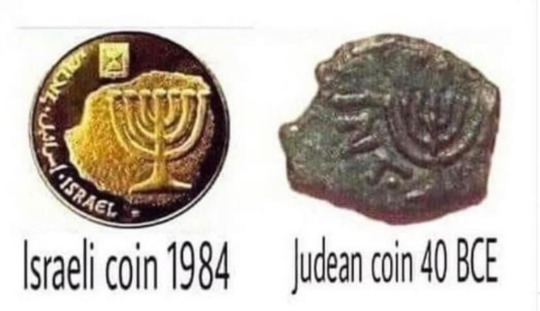
Jews are indigenous to Judea (and Palestine). Not Arabs. Not Muslims.
#israel#secular-jew#jewish#judaism#israeli#jerusalem#diaspora#secular jew#secularjew#islam#judea#judea and samaria#Samaria#coinage#ancient coins#Judean#indigenous#indigeneity
297 notes
·
View notes
Text

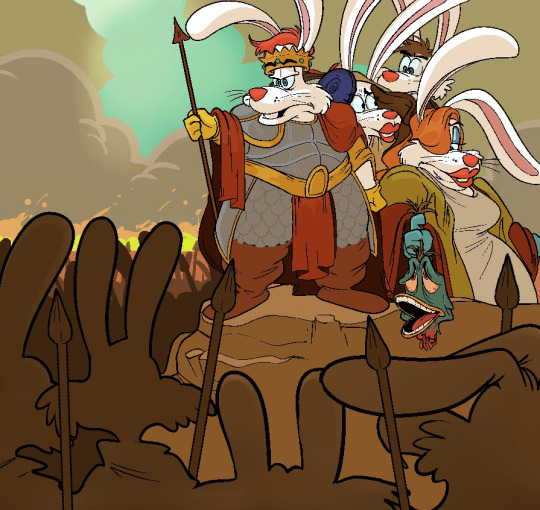
Always bet on the Rogudeans @p-pooky
11 notes
·
View notes
Text
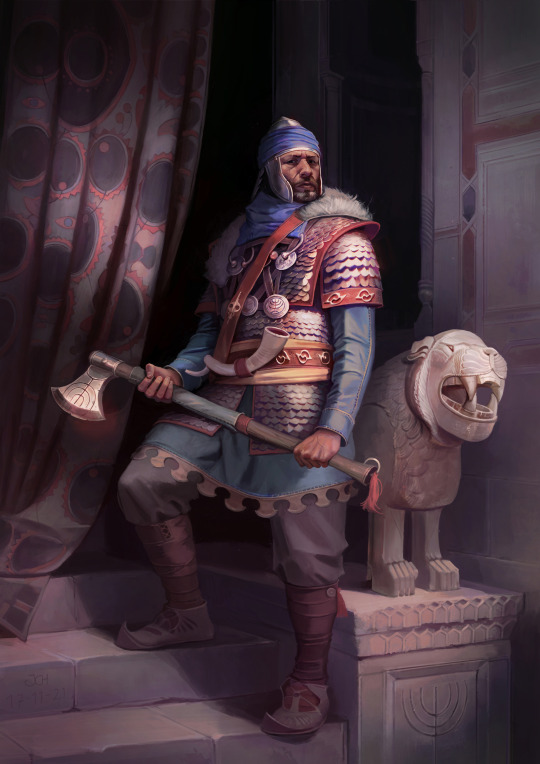
Painting I made a bit more than a year ago, a Temple Guardian from ancient Judea.
I took heavy inspiration from painter Ludwig Deutsch, a major driving force throughout the process that inspired me to set the mood and overall apparel.
Hope you like it!
Best wishes for the new year!
Joel
#Jewish#judean#warrior#armor#knight#israel#israelite#massachusetts#dungeons and dragons#rpg#board games#tabletop games#game art#fantasy painting#fantasy art#digital art#digital painting#concept art#concept design#character design#ancient history#medieval
24 notes
·
View notes
Note
Could i dm you on the subjecting of becoming friends over a mutual hobby in hebrew/judean/linguistics?
Feel free, I guess. My DMs are open.
#hebrew#Judean#Fun fact: the language is called Jewish (Yehudit) in the Tanakh!#This likely indicates the existence of a slightly different israelite language#I'm not an expert#But considering that moabite is similar enough to be readable to hebrew speakers#I'm guessing Israelite - the variation of the language from the northern kingdom - would be as well#If not even closer#I've also heard claims that this is the dialect Hosea is written in#And yes#Yiddish means jewish as well#That doesn't take away from the fact this was the name of the ancient language#Yiddish is a mixture if it and european languages#Mostly german#The tags felt empty#Now they have a short language ramble.
0 notes
Text
FORTY DAYS left TO REPENT IN 2024
SEPTEMBER 30 TO OCTOBER 12, 2024 (30 AV to 10 Tishrei = 40 Days) September 2, 2024 LABOR DAY – 29 AV, Monday We are to rest from our labors. I did rest by starting this article. I did not attend any of the Labor Weekend events except my Sabbath Torah Study covering the Parshah R’eh meaning, See / OBSERVE / BEHOLD. Observing ‘The Hand of God’ is what I will be focusing on in my articles over…
#Israel Anti-Semitism#Kings of earth#22#30 AV in History#Bible History patterns#Bible Study#Chamber Commerce Independence#Christian Persecution#Day of The Lord#Forty Day Moses#Golden calf Moses#Hebrew Study#Judean#Judgment 2024#New Hope Baptist persecuted#Santa Caligon Independece MO#Satana Caligon 2024#Torah#Woman love
0 notes
Text
07 Works, The Art of War, Henry Zaidan's Alma and the Judean Lion, after Luca Giordano, with footnotes
As Alma returns to her village, she carries herself with utmost grace, despite the wounds she has sustained in battle. Her dark red hair cascades down her shoulders, symbolizing her strength and determination… Please follow link for full post
View On WordPress
#Alma#Art#Artists#Biography#Calligraphy#Fine Art#footnotes#History#Judean#Lion#Middle East#MiddleEastArt#Paintings#Zaidan
0 notes
Text
This is a really exciting discovery! Firstly, this cache of Roman swords dates to around the time of the Bar Kokhba Revolt, the last Judean revolt against Roman rule. It was a major uprising led by Bar Kokhba, who many believed was the messiah and had come to win the Judean independence. The result was, unfortunately, a near-total Roman victory that cost the lives of perhaps 400,000 Judeans, with another 200,000 captured and either expelled or sold into slavery. Judea was drastically depopulated, and Jews were banned from entering Jerusalem, save for Tisha B'Av. It also solidified the firm separation of Christianity from Judaism.
What's interesting (at least to me) about these swords are that, if they are indeed from the Bar Kokhba Revolt, they pre-date our current examples of their use by the generalized Roman Army. Three of them are spathas, a type of sword that is longer than the traditional gladius, and which replaced it in the 3rd Century CE onwards. Prior to that, the spatha was mainly used by Celtic and Germanic warriors/mercenaries. The fourth sword is a shorter ring-pommeled sword, which was very rare to see anywhere outside western Europe at the time. It was most common in Romanized Germania. So it might not be a stretch to say this particular cache was procured (most likely stolen or acquired during a raid) from German Auxiliaries - though I'm no expert on this, and if I'm wrong, please correct me.
I love Roman finds that express the true width and span of the Roman Empire.
0 notes
Photo
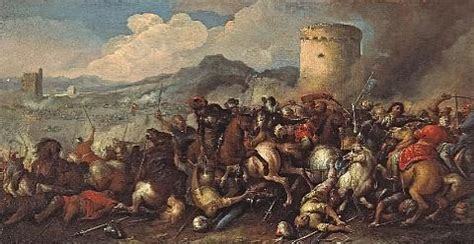
We have good news of freedom in Christ for them, not merely a word of God’s righteous judgment on their sins. Nonetheless, should they refuse the gospel, there remains the awful reality of a judgment to come that is far worse than anything that befell the Judeans in the siege and fall of their city to the Babylonians. They must flee to Christ as their only refuge if they are to escape the “wrath to come” (1 Thess. 1:10). ~ Iain M. Duguid
1 note
·
View note
Text
People loved my native judean miku so much i- 🥹 i didn't expect that
THANK YOU ALL SO MUCH🙏🏻🙏🏻🙏🏻
I want to try another verse(i warn you the style will be different bc i don't have a style yet lol)
#israel#jumbler#am israel hai#ישראבלר#jewish#jews#jewish miku#israeli miku#Native miku#miku hatsune#hatsune miku#vocaloid miku#Jewish clothing#Jewish history#Jewish culture#Jewish embroidery#Rikma#ישראל#Ancient israel#Ancient judea#Israeli#Judean#Israelite#from the river to the sea yall can suck my d
29 notes
·
View notes
Text
Do you ever just think about that Uncle Trent picture?

#because i do#a lot#the baseball cap that makes him look bald (ahead of his time tbf)#the new balance shoes before the judean adidas deal#shirt tucked in his joggers#how do you do fellow kids ass pose with his goatee and hands in his pockets#trent alexander arnold#bring back my loveable loser!
38 notes
·
View notes
Text
In 1920, Syria Palestina was a Roman-named colony or region, not a country, (aka Palestine), stretching from Iraq to southern Syria, and of course, there was no country called Jordan. The word Palestine was 100% derived from the Hebrew name for the Philistines. There is no evidence of a written language left by the philistines and the only name that they were known by was the name given to them by the Hebrews at the time. The evolution of the word went something like this:
פלש—פלישתים—ארץ פלשת—סוריה פלסטינה/פלשתינה—פלסטין/פלשתין
PaLaSh—plishtim—the land of paleset—Syria Palestina (the name given to the land of Israel and Judea as a punishment by the Roman)—- Palestine
PaLaSh is the Hebrew root word for invade meaning we called the sea fairing invaders by their actual name, invaders
Important to know that the Arabs absolutely DENIED ANY RELEVANCE and would not ascribe and meaning re: "Palestine" for themselves.
Arab nationalists in the post-WWI period ADAMANTLY rejected the designation. Arab spokesmen continued to insist that the land was, like Lebanon, merely a fragment of Syria. On the grounds that it dismembered an ideal unitary Arab state, they fought before the Anglo-American Committee of Inquiry and at the United Nations. The Arab historian Philip K. Hitti informed the Anglo-American Committee of Inquiry that “there is no such thing as Palestine in history.”
In 1937, Awni Bey Abdul-Hadi, founder of the first Palestinian Arab political party, testified to the Peel Commission, "There is no such country as Palestine. 'Palestine' is a term the Zionists invented. There is no Palestine in the Bible. Palestine is alien to us."
In May 1956, Ahmed Shukairy, who became the first head of the Palestine Liberation Organization (at a time when Jordan had annexed the "West Bank" and Egypt controlled Gaza), declared to the United Nations Security Council, “It is common knowledge that Palestine is nothing but southern Syria.”
In February 1970, Prince El Hassan bin Tala of Jordan, stated to the Jordanian National Assembly that "Palestine is Jordan and Jordan is Palestine; there is one people and one land, with one history and one and the same fate." Seven months later, the PLO attempted to take over Jordan, lost, and were unceremoniously, kicked out.
In 1977, PLO Executive Committee member Zahir Muhsein stated, "The Palestinian people do not exist. The creation of a Palestinian state is only a means for our continuing struggle against the state of Israel for our Arab unity. … In reality there is no difference between Jordanians, Palestinians, Syrians, and Lebanese."
One might argue that this particular group of Arabs established, sometime in the mid 1960s, a political identity as "Palestinians," when Arafat returned from strategic partnership meetings with the Soviets communists who were attempting to gain a larger foothold in the region, and advised him how to use "Palestine" identity as a cudgel against Israel.
What they are NOT is "ancient" inhabitants of the region which, under Ottoman rule, was also dubbed "Syria-Palestine." What they are NOT is any sort of distinct ETHNIC group—like the Judeans (Judea/Samaria/Israel), the Phoenicians (Lebanon), the Kurds, the Druze, or the Circassians. They are Arabs, sharing the language, culture, religion, cuisine, ethnic group, etc. of the people of Syria, Lebanon, Jordan, Egypt, and Saudi Arabia. Prior to the 1960s, before the PLO was created, there were ZERO Arabs self-identifying as Palestinians. During the 19 years that Jordan controlled the so-called "West Bank" (Judea and Samaria, which had been cleansed of Jews by the Jordanians) and when Egypt controlled Gaza, there was no movement to create a "Palestinian" state.
Attached is a photo of the Palestine Symphony Orchestra in 1936, which consisted of 73 jewish musicians, and conducted by none other than Arturo Toscanini (born in Parma, father was a tailor). Toscanini was the music director at La Scala, before spending spent 7 years conducting the New York Metropolitan Opera (1908-1915) and the New York Philharmonic (1926-1936). He lived out his latter years in NYC, about a 1/2 mile from where I lived for a decade from 2005-2015 in Riverdale (Bronx), which is now called Wave Hill, a non-profit cultural institution and botanical garden, located on 26 acres adjacent to the Hudson River.
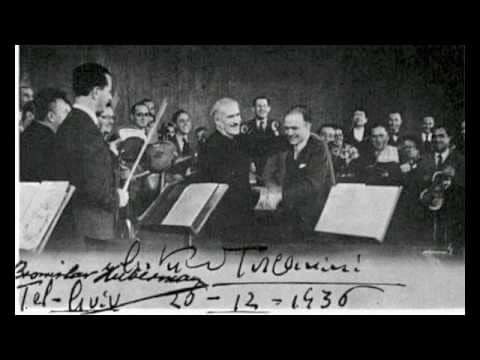
#syria palaestina#peel commission#judaism#israeli#israel#secular-jew#jewish#jerusalem#diaspora#secular jew#secularjew#islam#12 tribes of israel#samaria#judea#judean#rome#hadrian#philistines#kurds#phoenician#riverdale#bronx#toscanini#israel philharmonic symphony#palestine symphony orchestra#symphony#orchestra#syria#roman occupation
52 notes
·
View notes
Text
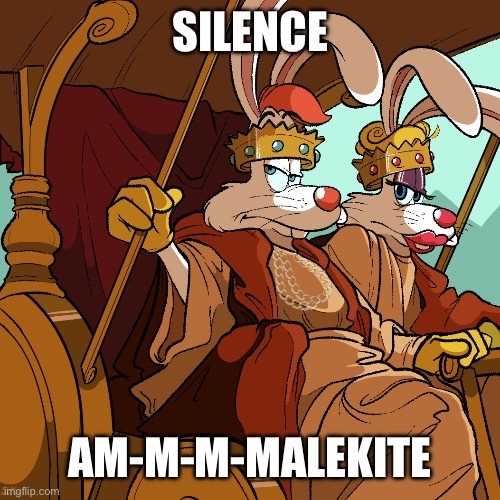
Woith every p-p-p-penny
#amelek#amalekite#Jewish#judean#Israelite#isreal#Jews#who framed roger rabbit#wfrr#roger rabbit#toon#meme#toonblr
9 notes
·
View notes
Text
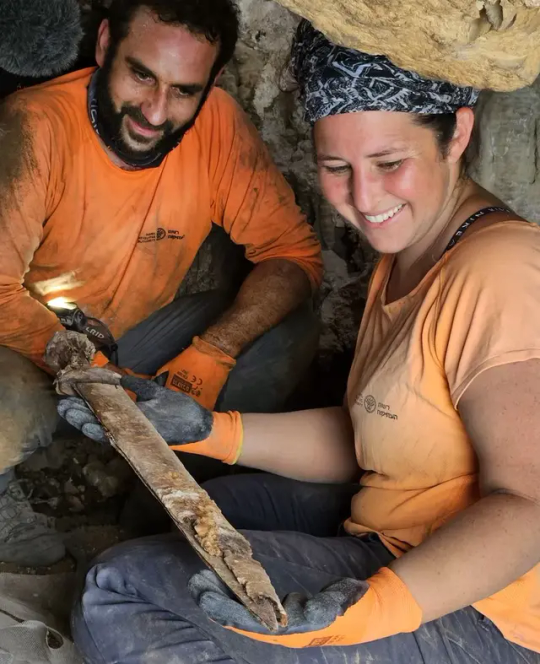
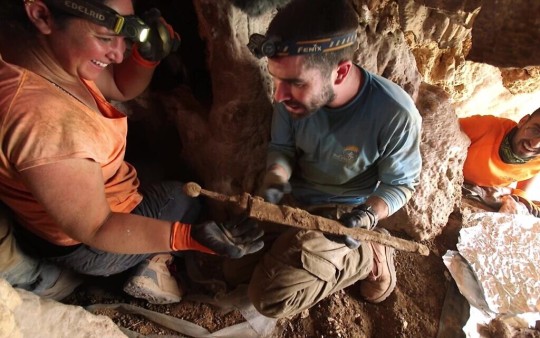
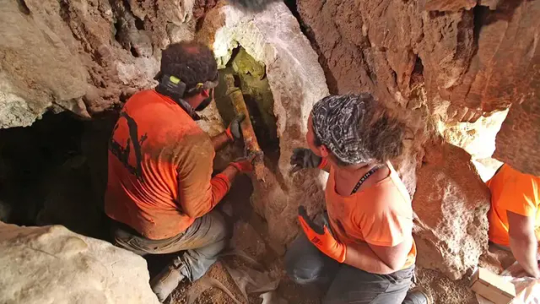
Four 1,900-Year-Old Roman Swords Found in a Judean Desert Cave
Apparently stolen by Jewish rebels, the incredibly well-preserved weapons are ‘an extremely rare find, the likes of which have never been found in Israel’
Archaeologists have discovered four 1,900-year-old Roman swords in a cave in the Judean Desert, which experts believe were captured by the Judean rebels during the Bar Kochba revolt and placed in a narrow crevice in the rock.
“We’re talking about an extremely rare find, the likes of which have never been found in Israel,” Dr. Eitan Klein, one of the directors of the Israel Antiquities Authority’s Judean Desert Survey, said in a video accompanying the announcement of the discovery. “Four swords amazingly preserved, including the fine condition of the metal, the handles, and the scabbards.”
The preliminary article on the swords is published in the volume “New Studies in the Archaeology of the Judean Desert: Collected Papers,” which explores new archaeological finds discovered in the Judean Desert Survey Project. A conference launching the book is taking place Wednesday in Jerusalem.
The four swords were discovered shoved into a small fissure in a cave near Ein Gedi National Park, near the Dead Sea. The cave is already well-known to archaeologists, as it contains a stalactite with a fragmentary ink inscription written in ancient Hebrew script characteristic of the First Temple period.
Recently, Dr. Asaf Gayer of Ariel University, geologist Boaz Langford of Hebrew University, and Israel Antiquities Authority photographer Shai Halevi returned to the cave to photograph the stalactite with multispectral photography, which can decipher additional parts of the inscription not visible to the naked eye. While inside the cave, Gayer spotted an extremely well-preserved Roman pilum — a shafted weapon — in a deep, narrow crack in the rock. He also found pieces of carved wood in an adjacent niche that turned out to be parts of the swords’ scabbards.
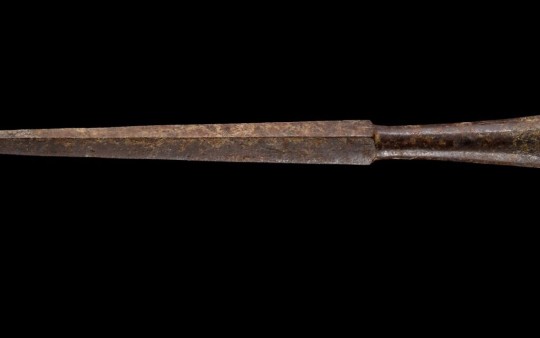
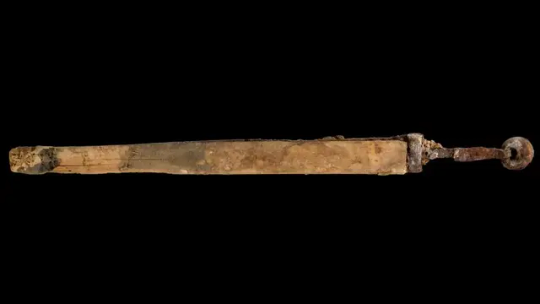

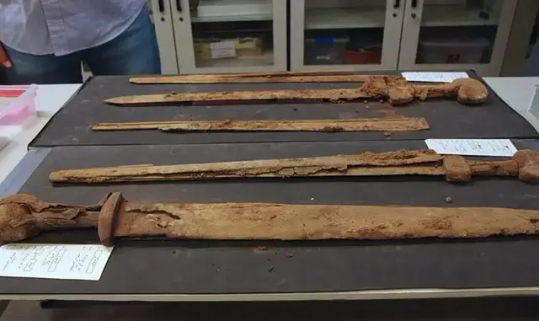
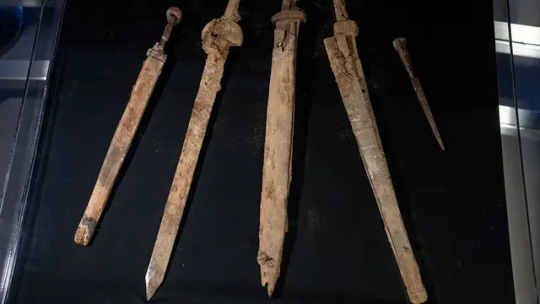
The researchers reported the find to the Israel Antiquities Authority and returned to the site with the Judean Desert Archaeological Survey Team, which is conducting a multi-year comprehensive survey of more than 800 caves in the Judean Desert to find and preserve archaeological remains before they are looted.
It was then that they discovered the four swords, three of which were found with the blades still inside their scabbards. Researchers also found ornate handles made of wood and metal with leather strips nearby. The arid climate in the Judean Desert helps preserve fragile artifacts that might otherwise be lost to the ravages of time, including materials such as leather and wood, which are rarely found in wetter parts of the country.
Three of the swords are Roman spatha swords, with blades 60 to 65 centimeters (23.5 to 25.5 inches) long. The fourth weapon, a ring-pommel sword, is shorter, with a 45-centimeter (18-inch) blade. The swords likely belonged to Roman soldiers and were stolen by Judean rebels who hid them in a cave either for later use or to avoid being caught with them.
“The blades have been preserved so well, they look like they could be picked up and used right now, even 2,000 years after they were forged,” said Langford. “You just realize that you are touching history, because here you are touching a find whose story you know.”
The Bar Kochba revolt, from 132 to 135 CE, also called the Second Jewish Revolt, was a Jewish rebellion against Roman rule in Judea led by rebel leader Simon Bar Kochba. Archaeologists believe the swords were likely hidden in the crevices inside the cave sometime during the revolt, as it was dangerous for Jews to be found with Roman weapons.
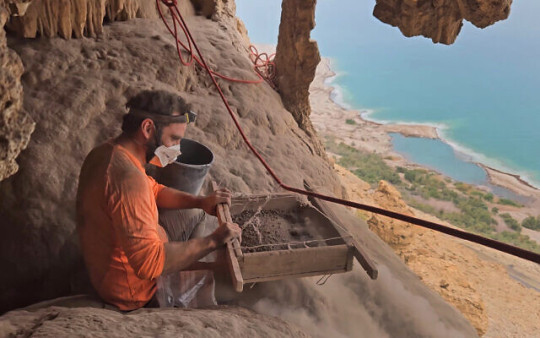
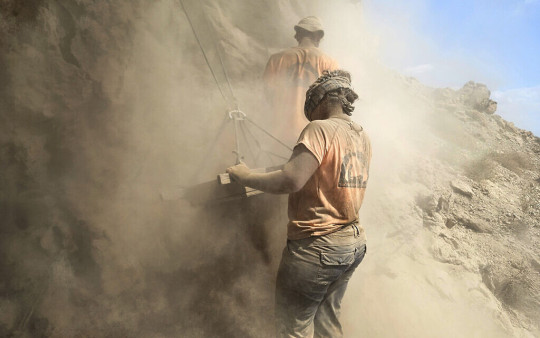
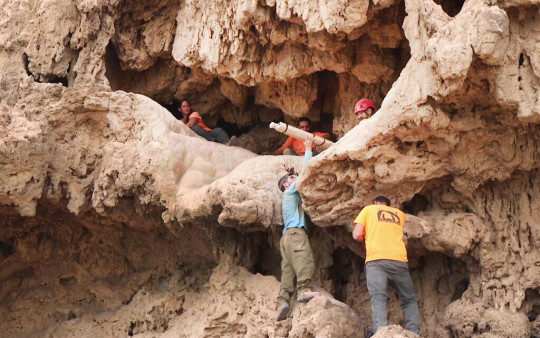
“This is a very rare and unique find on an international level that will shed light on the last moments of the war between the Jewish rebels and the Roman army at the time of the Bar Kochba revolt,” said Klein.
‘A unique time capsule’
The cave survey is being undertaken by the IAA in cooperation with the Archaeology Department of the Civil Administration in Judea and Samaria, and has been funded in part by the Ministry of Jerusalem Affairs and Heritage. Each body allocated about a third of the project budget.
Earlier this year, archaeologists carrying out the Judean Desert cave surveys discovered a rare half-shekel coin minted by the Bar Kochba underground economy.
The cave survey started in 2017 and helped archaeologists discover at least 20 new caves they had not previously known. In 2021, archaeologists announced that one of the caves contained previously undiscovered fragments of the Dead Sea Scrolls, some 60 years after the last pieces of the Dead Sea Scrolls were discovered.
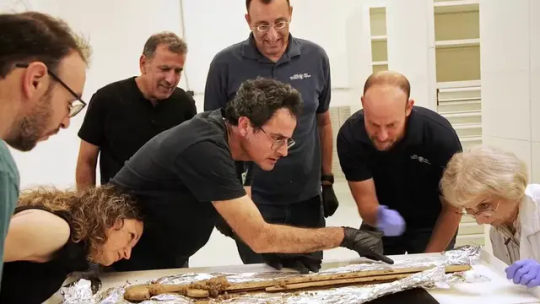
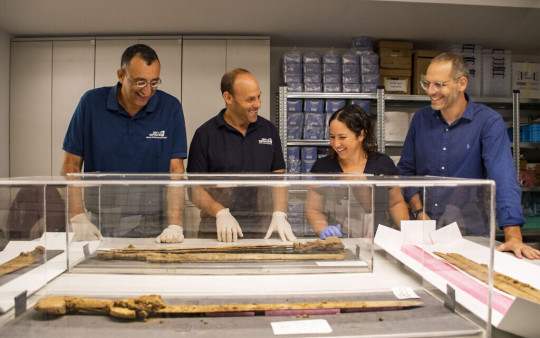
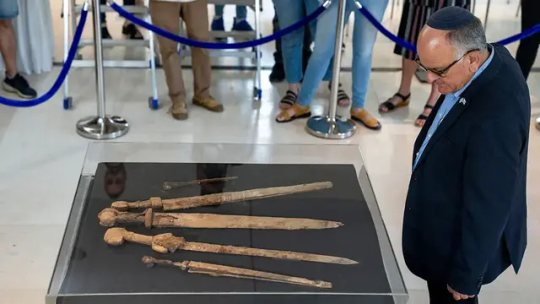
Following the discovery of the swords, archaeologists carried out an extensive excavation of the cave, discovering artifacts from the Chalcolithic period (around 6,000 years ago) and the Roman period (around 2,000 years ago). At the entrance to the cave, researchers found a Bar Kochba bronze coin from the time of the revolt that could help pinpoint the dates when the weapons were hidden.
“This is a dramatic and exciting discovery, touching on a specific moment in time,” said Eli Escusido, director of the Israel Antiquities Authority.
Noting that not all are aware that the dry climatic conditions in the Judean Desert enable the preservation of artifacts that do not survive in other parts of the country, Escusido called the area a “unique time capsule” where it is possible to find “fragments of scrolls, coins from the Jewish Revolt, leather sandals — and now even swords in their scabbards, sharp as if they had only just been hidden away today.”
By Melanie Lidman.
#Four 1900-Year-Old Roman Swords Found in a Judean Desert Cave#Ein Gedi National Park#Judean Desert Survey#Dead Sea#Bar Kochba revolt#roman swords#roman weapons#ancient artifacts#archeology#archeolgst#history#history news#ancient history#ancient culture#ancient civilizations#roman history#roman empire#ancient Israel#Israel history#long reads
359 notes
·
View notes